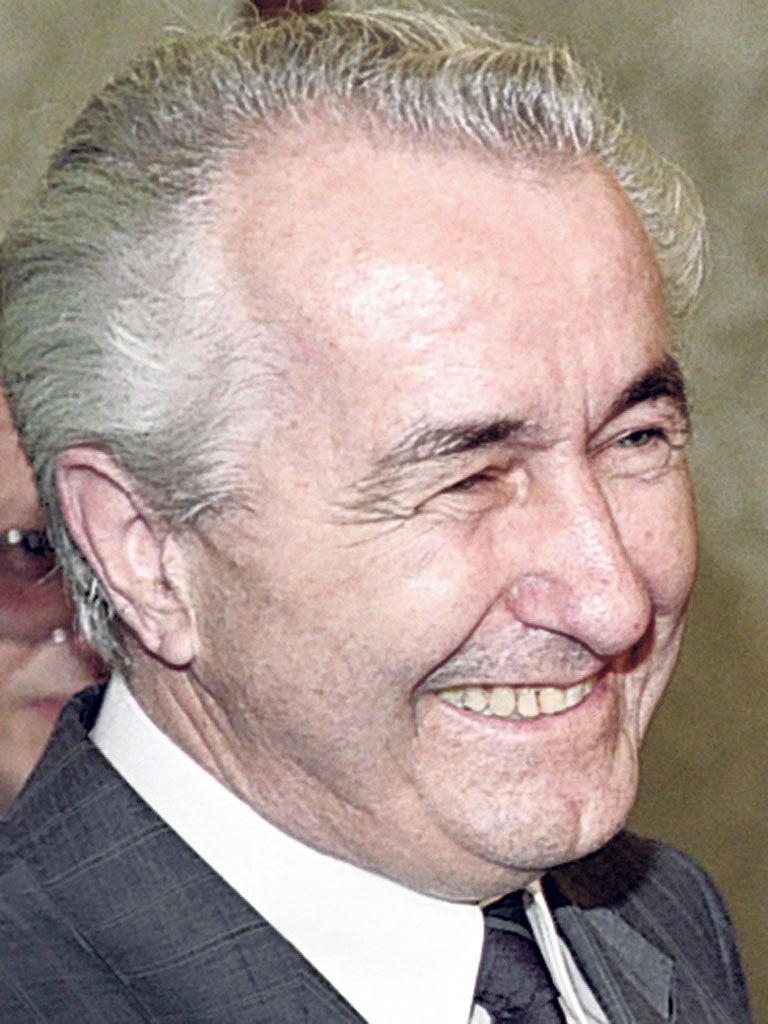
Your support helps us to tell the story
From reproductive rights to climate change to Big Tech, The Independent is on the ground when the story is developing. Whether it's investigating the financials of Elon Musk's pro-Trump PAC or producing our latest documentary, 'The A Word', which shines a light on the American women fighting for reproductive rights, we know how important it is to parse out the facts from the messaging.
At such a critical moment in US history, we need reporters on the ground. Your donation allows us to keep sending journalists to speak to both sides of the story.
The Independent is trusted by Americans across the entire political spectrum. And unlike many other quality news outlets, we choose not to lock Americans out of our reporting and analysis with paywalls. We believe quality journalism should be available to everyone, paid for by those who can afford it.
Your support makes all the difference.Ante Markovic, who has died at the age of 87, was a politician who as the former Yugoslavia's last prime minister tried to prevent the country's bloody break-up in the 1990s. A Croat born in Bosnia, he became Yugoslavia's prime minister in March 1989, two years before the former communist country started unravelling along ethnic lines.
"The start of his premiership will be remembered as the last period of optimism and hope in the Socialist Federal Republic of Yugoslavia," the Bosnian daily newspaper Dnevni Avaz said on its website.
During his tenure, Markovic launched an ambitious programme of pro-Western economic reforms, including the privatisation of state-run companies and the stabilisation of the dinar. The result was a halt to soaring inflation and atemporary rise in the country's living standards.
The reforms made him popular among Yugoslavia's liberals and brought the country to the threshold of the European Union. But he was hated by nationalists for his unifying stands and his efforts to mediate between the increasingly hostile leaderships of the six former Yugoslav republics.
In July 1990, he formed a political party supporting a reformed Yugoslav federation but was defeated in the elections by nationalist and separatist parties. Before he resigned in December 1991 under pressure from nationalists, Markovic tried to find a compromise between Slovenia and Croatia, the republics seeking to secede, and Serbia, which insisted that Yugoslavia remain a single entity. His efforts failed and the country was plunged into a series of ethnic wars.
"He was always against the war, against the break-up of the country," Bogic Bogicevic, the Bosnian member of Yugoslavia's collective presidency at the time of Markovic's tenure, said. "The others who wanted war and were for the break-up of the country were obviously more successful than him."
In 2003, he appeared as a prosecution witness at the war crimes trial of the former Serbian leader Slobodan Milosevic at a tribunal in The Hague. He testified that Milosevic and the former Croatian president Franjo Tudjman both told him that they had made an agreement on the eve of the war in Bosnia in 1991 to divide the former Yugoslav republic between Serbia and Croatia.
After the wars, Markovic dedicated himself to a business career and consulting for governments, including that of Macedonia, and banks.
Born in Konjic, in the then kingdom of Yugoslavia in 1924, Markovic graduated from the Electrical Engineering Faculty at the University of Zagreb in 1954. He became president of Croatia in 1986.
He is survived by his wife, a son and a daughter.
Ante Markovic, politician: born Konjic, Herzegovina 25 November 1924; died Zagreb 28 November 2011.
Join our commenting forum
Join thought-provoking conversations, follow other Independent readers and see their replies
Comments